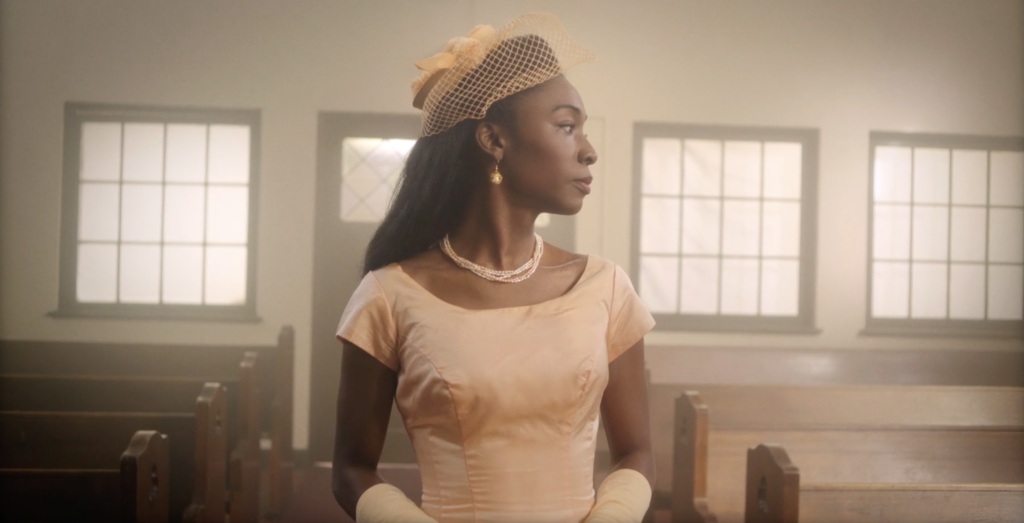In 1958, a trans woman who went by “Agnes Torres” outsmarted the system to attain gender-affirming healthcare. Thanks to her resourcefulness, she received hormones and corrective surgery from a UCLA gender study led by sociologist Harold Garfinkel. The remarkable case of a nineteen-year-old trans woman who made a life for herself has since served as a template for generations of trans folks to follow. Torres’ courageous maneuver is celebrated by many for exposing the performative nature of gender, a fragile social construct that can be dismantled.
A poetic fusion of fact and fiction, “Framing Agnes” borrows Torres’ case to revisit other trans individuals who have faded into obscurity, but have now been recovered by sociologist Kristin Schilt and director Chase Joynt in their exploration of Garfinkel’s archive. Torres is remembered in two ways, historian Jules Gill-Peterson tells us, “either as a cautionary tale about the untrustworthiness of trans people, or as an icon and a folk hero who navigated a system designed to exclude her.”
“Framing Agnes,” based on Schilt and Joynt’s short doc of the same name, unpacks these two factions in its dramatic reenactments of Garfinkel’s case files in talk show format. In letting us look history in the eye as never before, the doc attests to the unparalleled power of visual storytelling. The interview subjects are portrayed by trans actors who offer their own interpretation of the never-before-seen transcripts, adding verbal and nonverbal nuance to give sentience to inert words on a page. “Transparent’s” Zachary Drucker plays a cautious but forthright Torres, who is joined by Angelica Ross (“Pose”) and Jen Richards (“Mrs. Fletcher”), who play research subjects Georgia and Barbara, respectively. One conversation at a time, “Framing Agnes” assembles the mosaic of trans history to take stock of how far the battle for trans rights has come, bringing to the fore the invisible, forgotten trailblazers who’ve made such progress possible.
“It’s so interesting that Agnes was anonymous,” Drucker muses about the titular case study. “I believe that she, in many ways, represents a generation of trans women who were encouraged to disappear.” As the doc reveals, trans folks in the mid-century were sworn to secrecy after receiving surgery and were forced to lead lives as cis-presenting individuals. Erasure was not so much a choice as it was a survival necessity.
Considering cases of transgender violence today, it’s not surprising that 60 years ago folks had to conceal their trans identity. A 2021 study from UCLA’s Williams Institute found that trans folks are four times more likely to sustain violent victimization than their cis counterparts. Trans people of color are vulnerable to additional obstacles and harm due to their intersectional identity. “The media has rightly given attention to the 2020 increase in murders of transgender women of color,” the study’s lead author Andrew R. Flores emphasized.
“Framing Agnes” examines the multiply marginalized trans experience through Georgia (Ross), a Black trans woman, in an effort to resist the scholarly, and popular, tendency to whitewash trans icons of the past. “We live in a world that has been dominated by stories told by white people, by people who have the most power within white communities,” Ross reflects. “We have heard the story told by the hunter and not by the lion, and not by the lions who not only fought back but got away.”
Domesticity also provided an armor for wealthy, white trans women, who could camouflage with social norms thanks to the illusion of cisheteronormativity. Georgia and many other trans women of color were not afforded the same privilege because “just to exist and walk through the world in public space as a Black trans woman was to be considered guilty of a crime,” the doc emphasizes.
Gill-Peterson reminds us that Garfinkel’s findings are limited and biased. After all, the ivory tower of UCLA sociologists eschewed conversations about race and class in order “to reproduce mirror images of American culture at that time: beautiful, white, middle-class heterosexuals.” That said, however, the absence of certain demographics – such as Asian, Latin American, and elderly folks – isn’t necessarily something to mourn. Speaking on the “right to invisibility,” Gill-Peterson points out that those excluded from Garfinkel’s study were likely grateful for the omission. “What they were doing with their lives might have so exceeded our imagination – and the fact that we don’t know who they are says very little about them and everything about us,” she says.
“Framing Agnes” is an exercise in self-interrogation. As participants uncover the vestiges of trans history, the project demands those on and off camera to reevaluate their intentions with these historical accounts. What are the concrete actions they should take once they depart the archive? The doc reminds us that the goal is not to close the gulf between the past and present, nor to romanticize the struggles of our predecessors. And it’s not enough to just seek solace from these case files, either, when it comes to the larger movement for trans rights. “We can’t turn to Georgia, just like we can’t turn to Agnes, to fix something that is our fault,” Gill-Peterson acknowledges. “We can imagine more about them – but we have to admit when that imagining is about what we want and need from them, and not what they were really there doing.”
“Framing Agnes” is now in theaters. Written by Morgan M. Page and Joynt, the doc premiered at this year’s Sundance Film Festival, where it won the Audience Award in the NEXT section and a NEXT Innovator Award.







